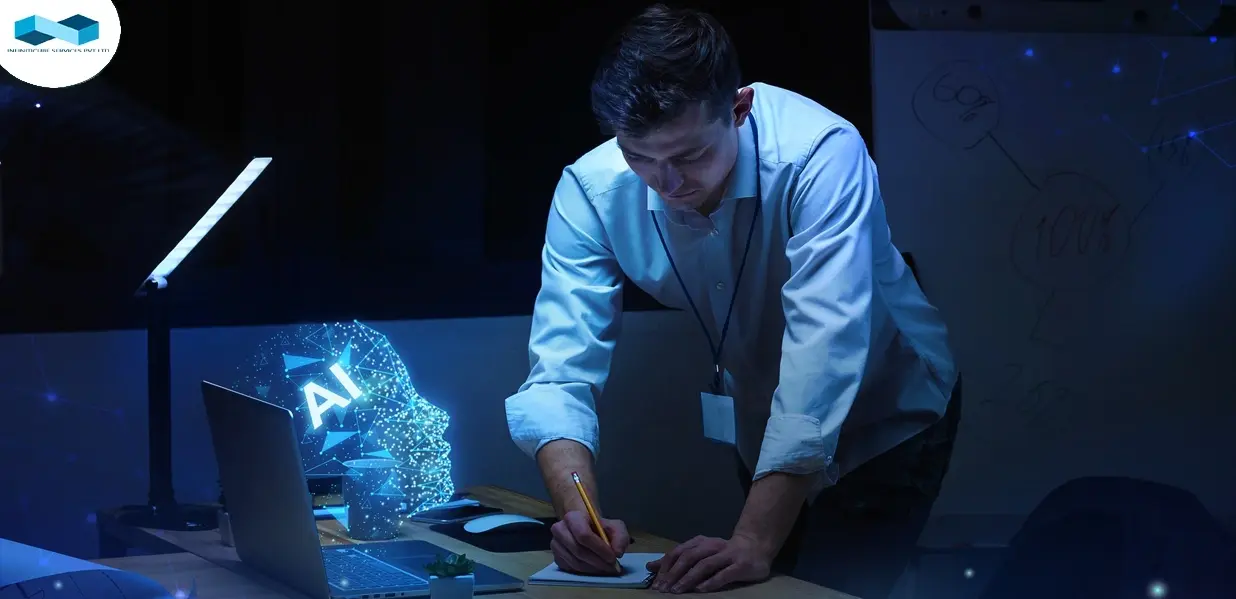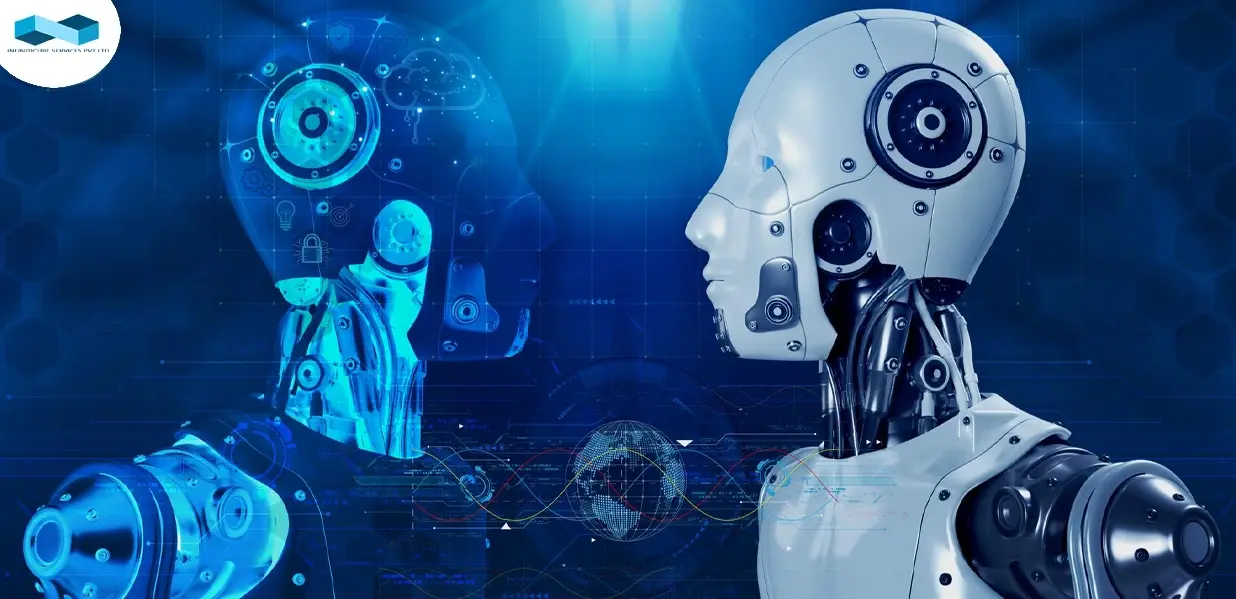Software Development In AI Age: How To Balance Quality and Speed
The influence of Artificial Intelligence (AI) in various industries is undeniable. As businesses strive to stay ahead of the competition, the demand for skilled developers, particularly in balancing the quality and speed of software development in AI age, continues to soar.
In software development, where efficiency and innovation are paramount, AI is becoming increasingly indispensable. According to a survey conducted by GitHub, a staggering 92% of developers are already utilizing AI to tackle their workloads effectively. And this trend shows no signs of slowing down.
Some Of The Key Findings From The Survey
- AI Adoption: The survey reveals that AI is being embraced at scale, with 92% of developers in the United States utilizing AI coding tools both professionally and personally.
- Time Constraints: Despite advancements in DevOps practices, developers still face challenges with time-consuming tasks such as waiting on builds and tests, highlighting the need for further optimization in this area.
- Importance of Collaboration: Developers deem Collaboration essential, with an average of 21 engineers working together on projects. They also emphasize the significance of collaboration in performance reviews.
- AI's Role in Collaboration: Over 80% of developers believe that AI coding tools will enhance team collaboration, showcasing optimism about the technology's potential to streamline workflows.
- Benefits of AI: Developers anticipate numerous benefits from AI coding tools, including improved code quality, faster completion times, and more efficient incident resolution.
Why Software Development In AI Age Need Experienced Developers?
GitHub's survey underscores the importance of investing in a positive developer experience. By prioritizing collaboration and providing developers with the tools they need, companies can empower their teams to achieve greater success.
However, as AI becomes increasingly integrated into the development process, it's essential to ensure that quality standards are maintained. And it is possible only when
Understanding of Programming Concepts
- Software developers possess a solid grasp of fundamental programming concepts such as variables, loops, and functions.
- This foundational knowledge enables them to comprehend the generated code output and make necessary modifications with ease.
Debugging and Troubleshooting Skills
- Experienced software developers are adept at debugging and troubleshooting code errors.
- When utilizing an AI code generator, these skills become invaluable in identifying and resolving any issues or bugs in the generated code.
Optimization and Efficiency
- Software development in AI age needs individuals with the ability to optimize code for efficiency and performance.
- This expertise allows developers to fine-tune the AI-generated code, enhancing its speed, scalability, and resource utilization.
Integration with Existing Systems
- With software development experience, professionals can seamlessly integrate AI-generated code with existing software systems and frameworks.
- They understand the architecture and dependencies of the system, ensuring smooth compatibility and interoperability.
Customization and Adaptation
- Seasoned software developers possess the skill to customize AI-generated code according to specific project requirements.
- They can adapt the code to meet unique business needs, incorporating additional functionalities or modifying existing logic as necessary.
AI Can’t Replace Human Developers: Truth Or Myth
While AI can augment certain aspects of software development, it cannot fully replace human developers. Human creativity, contextual understanding, adaptability, and ethical considerations are indispensable in driving innovation and ensuring the responsible development of technology. It is because of
Complementary Roles
- AI and human developers play complementary roles in software development.
- While AI can automate repetitive tasks and assist in code generation, human developers provide creativity, critical thinking, and problem-solving skills that are essential for complex tasks and innovation.
Creativity and Innovation
- Human developers possess creativity and innovation capabilities that are difficult for AI to replicate.
- They conceptualize new ideas, design novel solutions, and envision the bigger picture, driving technological advancements and pushing the boundaries of what's possible in software development.
Contextual Understanding
- Human developers have a deeper understanding of the context, business requirements, and user needs behind the code they write.
- They can interpret ambiguous requirements, anticipate edge cases, and make judgment calls based on real-world scenarios, which AI may struggle to comprehend without human intervention.
Adaptability and Learning
- Human developers are adaptable and continuously learning, evolving, and improving their skills over time.
- They can quickly adapt to new technologies, frameworks, and methodologies, leveraging their experience and intuition to navigate complex development challenges effectively.
Ethical and Social Implications
- Human developers consider ethical and social implications in their decision-making process, ensuring that technology is developed and deployed responsibly.
- They address concerns related to bias, privacy, security, and fairness, which require human judgment, empathy, and ethical reasoning beyond the capabilities of AI.
Working Responsibly With AI In Software Development
Understanding Ethical Implications
- Developers must recognize the ethical considerations surrounding AI code generators, including potential biases, privacy concerns, and unintended consequences.
- Prioritizing ethical practices ensures that leveraging AI in software development aligns with legal and moral standards.
Validation and Testing
- Thorough validation and testing are essential to ensure the reliability and accuracy of AI-generated code.
- Developers should conduct extensive testing to identify and address any errors or inconsistencies in the generated code.
Human Oversight and Intervention
- While AI code generators can automate certain aspects of software development, human oversight and intervention remain crucial.
- Developers should actively monitor the output of AI-generated code and intervene when necessary to correct errors or ensure compliance with project requirements.
Continuous Learning and Improvement
- In AI Age, Software development teams should prioritize ongoing education and training to stay updated with advancements in AI technology and best practices.
- By continuously learning and improving their skills, developers can leverage AI in software development more effectively and responsibly.
Transparency and Accountability
- Transparency is key to building trust in AI-generated code. Developers should document the use of AI code generators and explain how they are integrated into the software development process.
- Additionally, establishing accountability mechanisms ensures that responsibility is assigned appropriately in case of any issues or errors arising from the use of AI-generated code.
Streamlining Development Processes
- Automated tools for GenAI streamline various stages of the software development lifecycle, from code generation to testing and deployment.
- By automating repetitive tasks, these tools enhance productivity and efficiency, allowing developers to focus on higher-level problem-solving and innovation.
Ensuring Consistency and Accuracy
- Automated tools enforce consistency and accuracy in code generation, reducing the likelihood of human errors and inconsistencies.
- Through predefined templates and coding standards, developers can maintain code quality and adhere to best practices more effectively.
Enhancing Security Measures
- Automated tools incorporate built-in security measures to safeguard against potential vulnerabilities in AI-generated code.
- By implementing encryption, access controls, and threat detection mechanisms, these tools help mitigate security risks and protect sensitive data.
Facilitating Collaboration and Knowledge Sharing
- Automated tools promote collaboration among development teams by providing centralized repositories for code sharing and version control.
- Developers can collaborate seamlessly on AI-generated code, share insights, and leverage collective expertise to drive innovation and problem-solving.
Monitoring and Auditing Capabilities
- Automated tools offer monitoring and auditing capabilities to track changes, identify anomalies, and ensure compliance with regulatory requirements.
- Through real-time monitoring dashboards and audit trails, stakeholders can gain visibility into the development process and address potential issues proactively.
Conclusion
As information mentioned software development, Artificial Intelligence (AI) integration is driving innovation and efficiency. Businesses face the challenge of balancing quality and speed in this AI-driven era.
Surveys by GitHub reveal widespread adoption of AI coding tools among developers, signaling a growing reliance on AI for complex tasks.
However, human expertise remains vital. Software development experience ensures AI-generated code meets quality standards and project needs.
While AI streamlines processes and boosts efficiency, responsible integration is crucial. This means prioritizing ethics, rigorous testing, human oversight, and continuous improvement.
Automated tools like GenAI offer streamlined processes, security, and monitoring. By combining automation with human expertise and ethical standards, teams can deliver high-quality software in the AI age.
 June 27, 2025
June 27, 2025
 Balbir Kumar Singh
Balbir Kumar Singh
 0
0
 June 13, 2025
June 13, 2025
 Balbir Kumar Singh
Balbir Kumar Singh
 0
0









Leave a Reply